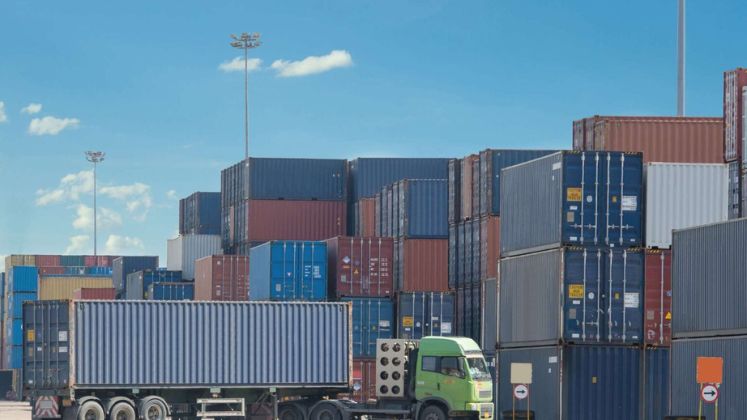
Inland Container Depots (ICDs) across Bangladesh have announced a significant hike in export container handling charges, with rates set to rise by up to 60% from 1st September. The move has sparked concern among exporters already under pressure from rising global trade costs and other economic challenges.
The Bangladesh Inland Container Depots Association (BICDA) issued a circular explaining that the increase is driven by escalating operational costs, currency devaluation, and inflation. The decision comes at a critical time, as Bangladesh’s garment sector prepares to face a 35% reciprocal tariff imposed by the United States starting 1st August.
Under the new rates, the export stuffing package charge for a 20-foot container will increase from Taka 6,187 to Taka 9,900, while a 40-foot container’s charge will jump from Taka 8,250 to Taka 13,200. Additional fees such as landing charges will also see an upward revision, rising from Taka 207 per tonne to Taka 270. Similarly, the CFS storage charge will increase from Taka 29 to Taka 45.
In 2024, ICDs handled approximately 7.50 lakh TEUs of export containers, with over 80% being 40-foot containers. The new charges could lead to an additional Taka 300 crore annually in logistics expenses, assuming export volumes stay constant.
Md Ruhul Amin Sikder, Secretary General of BICDA, defended the decision, stating that charges had remained largely unchanged for over a decade. He said that transport costs on the Dhaka-Chattogram highway have increased by more than Taka 20,000 in recent years, yet there has been no protest. This adjustment is necessary for the financial survival of ICD operators.
Trade leaders and exporters sharply criticized the rate hike, warning it could damage Bangladesh’s competitiveness amidst global economic uncertainties. Mahmud Hasan Khan, President of the Bangladesh Garment Manufacturers and Exporters Association (BGMEA), called the move “unacceptable,” especially given the impending US tariffs. He said BGMEA would seek discussions with BICDA to review the decision.
Syed M Tanvir, a BGMEA director, pointed out that although buyers usually bear logistics costs, the increased charges would eventually be passed onto exporters. He also highlighted issues such as inadequate deep seaports and delays at ports and customs that already inflate logistics costs.
Khairul Alam Sujan, former Vice President of the Bangladesh Freight Forwarders Association (BAFFA), echoed similar concerns, warning that rising costs could further undermine Bangladesh’s export sector, especially as global buyers seek alternative sourcing destinations.
With the export sector under mounting pressure from tariffs, logistical inefficiencies, and rising costs, the recent ICD rate hike is expected to become a focal point of trade discussions in the coming weeks. Exporters are calling for urgent dialogue with authorities to reconsider or stagger the implementation of the new rates to prevent further economic strain on Bangladesh’s vital foreign trade industry.






